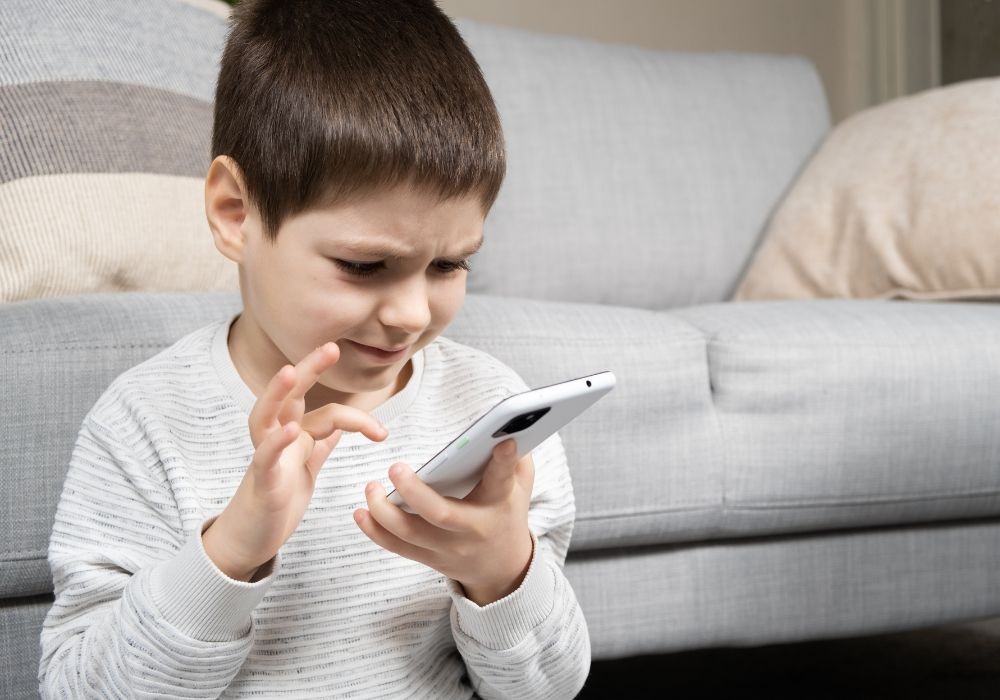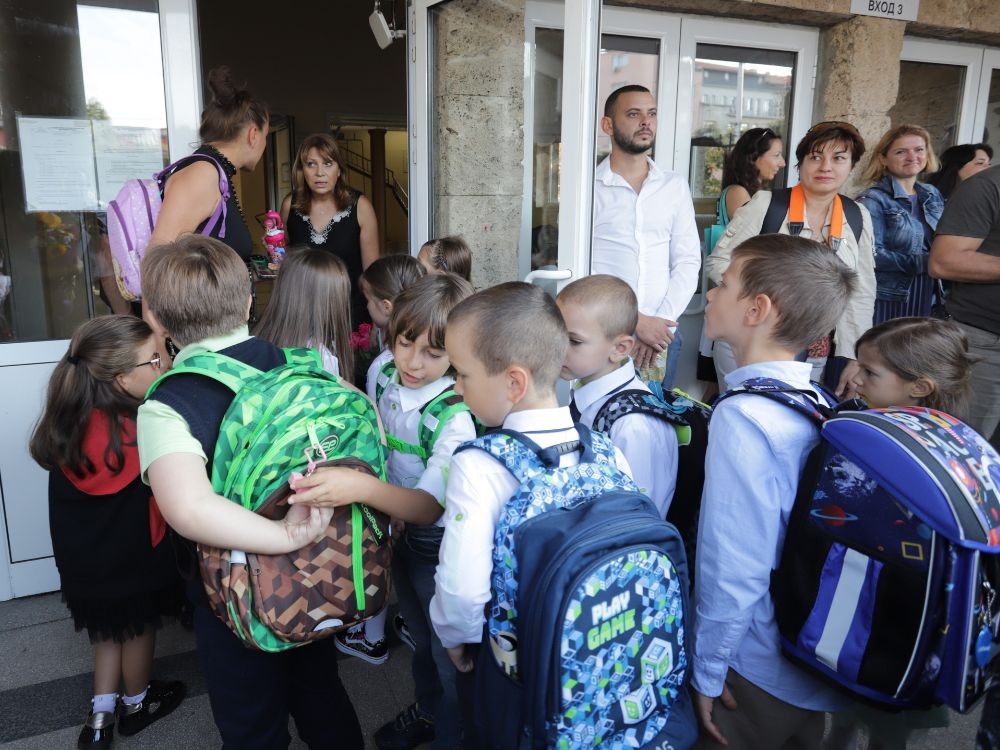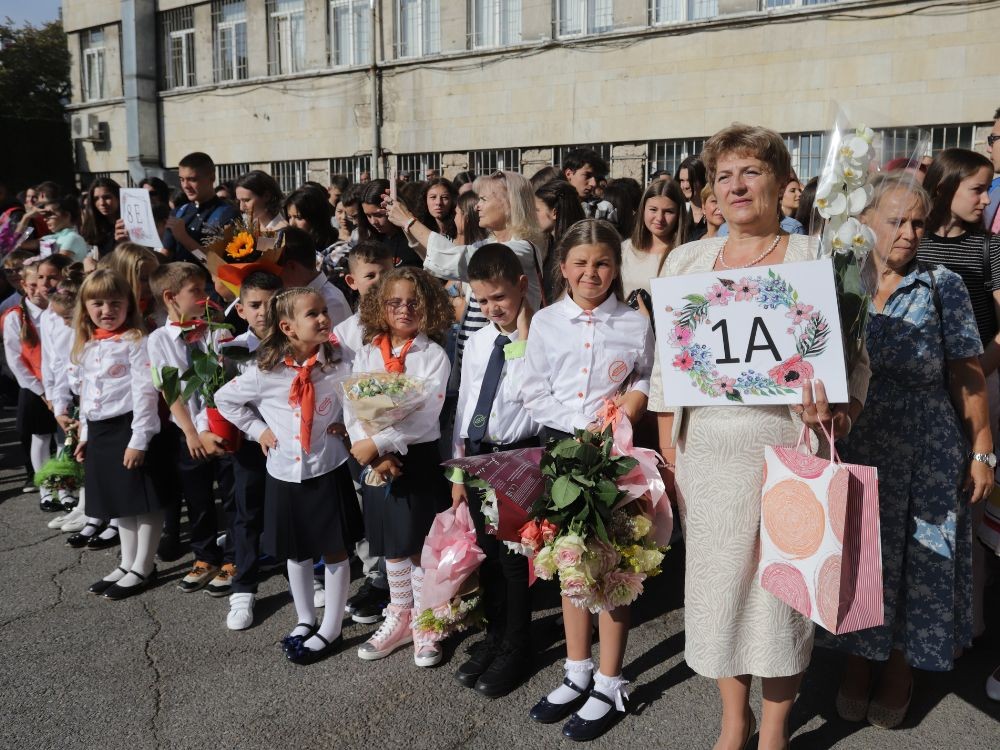With excitement and some trepidation, more than 55,000 Bulgarian children will be starting school this year for the very first time. On 16 September, the first graders will enter their renovated classrooms and sit down at their desks where colourful books await them. But the most important thing before they embark on this journey is to prepare them psychologically. “Parents should talk to their children beforehand to give them a positive attitude,” says psychologist Yana Alexieva from the Parents association whose handbook for parents of first graders gets updated as the world around changes.
“I often get asked by parents: Now that he/she is in first grade do we need to change their room entirely, buy a desk etc. And our advice is not to do that but to give their child enough time to be a child and play because after school what they need is to play. With pocket money we advise the same thing as with mobile phones – parents should make a decision together on what to do. Otherwise a conflict could arise. In the initial stage children do not need mobile phones in class, nor do they need pocket money because at school everything has been provided,” Yana Alexieva says.
Parents and teachers say they are finding it more and more difficult to handle the new generation of pupils. And it is true that the so-called Generation Alpha is very different from previous generations. It is the first entirely digital generation with practically no notion of our analogue world.
“Yes, they are different, they are much more aware, they have been raised differently by their parents and the environment they are growing up in. They have been raised so they are given a voice, things get discussed with them,” Yana Alexieva says. “But there are problems as well with too much screen time. These are children that require a more individual approach, they need to be given more freedom. They are not the kind of children who will sit at their desks with their eyes on the blackboard listening to the teacher for a full 40 minutes. They have access to an awful lot of information, what they need more is to be socially emotional, to acquire media and digital literacy and, of course, to learn to read and write.”
Every parent wants their child to go to school in their own neigbourhood, and in big cities like Sofia or Plovdiv the big rush is for the most prestigious primary schools even though there is a shortage of places at such schools. So, applying for them and the ranking for first grade takes place digitally via a municipal online platform.
“Children in Bulgaria gain literacy in pre-school and in first grade they can read and write to a certain degree. Because nursery school has prepared them for that – an approach that is different from other European countries. Whether this is the right thing to do – that is for pedagogues and experts to say. From our point of view, however, the more a child has been taught to be independent, to play, to have fun, the better. Because there is a great deal of knowledge and skills that children acquire in pre-school. From this point of view reading and writing could be postponed for school – the children who already know how to read and write get bored in first grade. And this requires an individual approach from the teacher,” says Yana Alexieva.
Translated and posted by Milena Daynova
Photos: BGNES, roditeli.org
The film "Gundi: Legend of Love" caused a sensation across the Ocean. Screenings of the film story about the life of legendary football player Georgi Asparuhov – Gundi were held in Los Angeles and Las Vegas as the halls were full...
On this day 35 years ago, the authoritarian regime of communist dictator Todor Zhivkov collapsed. To mark the anniversary, the BGNES news agency carried out a survey of monuments to totalitarianism. The agency checked whether the monuments of the..
Residents and guests of the village of Kolena, Stara Zagora Municipality, gather for the Young Wine Festival. The event was celebrated for the first time in 2017, and a few years later the local teacher and winemaker Martin Slavov gave the..
Over 3.5 million Ukrainians have arrived in or passed through Bulgaria since the beginning of the war. Nearly 200,000 people have found temporary..
At the Bulgarian Embassy in London, Prof. Bettany Hughes presented excerpts from the new BBC series - Wonders of Bulgaria. Prof. Bettany..
An innovation for the treatment of diabetic foot ulcer using the patient's own tissue and artificial intelligence has been implemented at the University..

+359 2 9336 661
